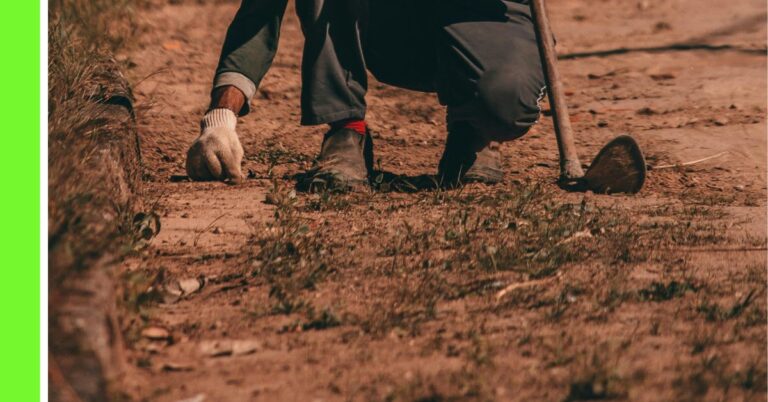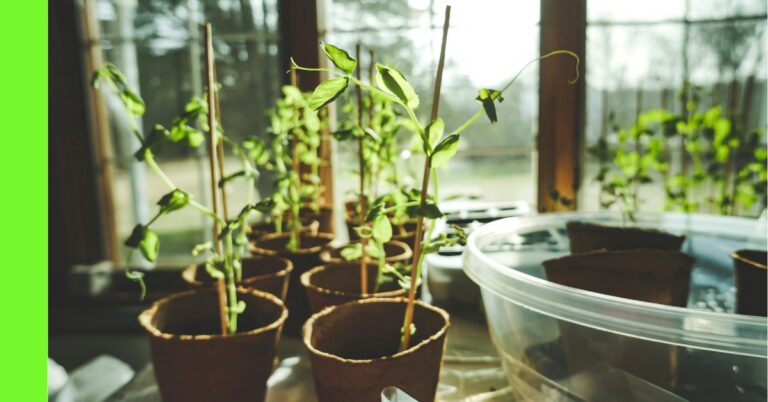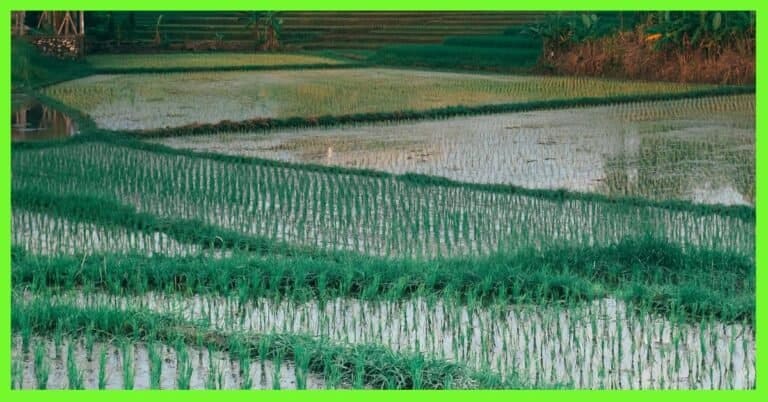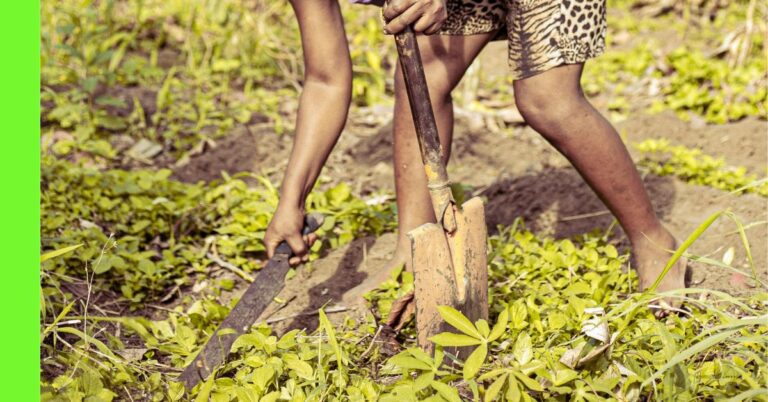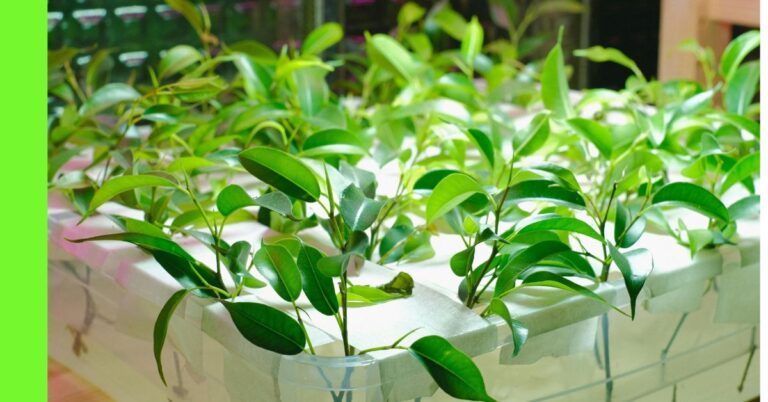Essential Farm Equipment for Small-Scale Farmers
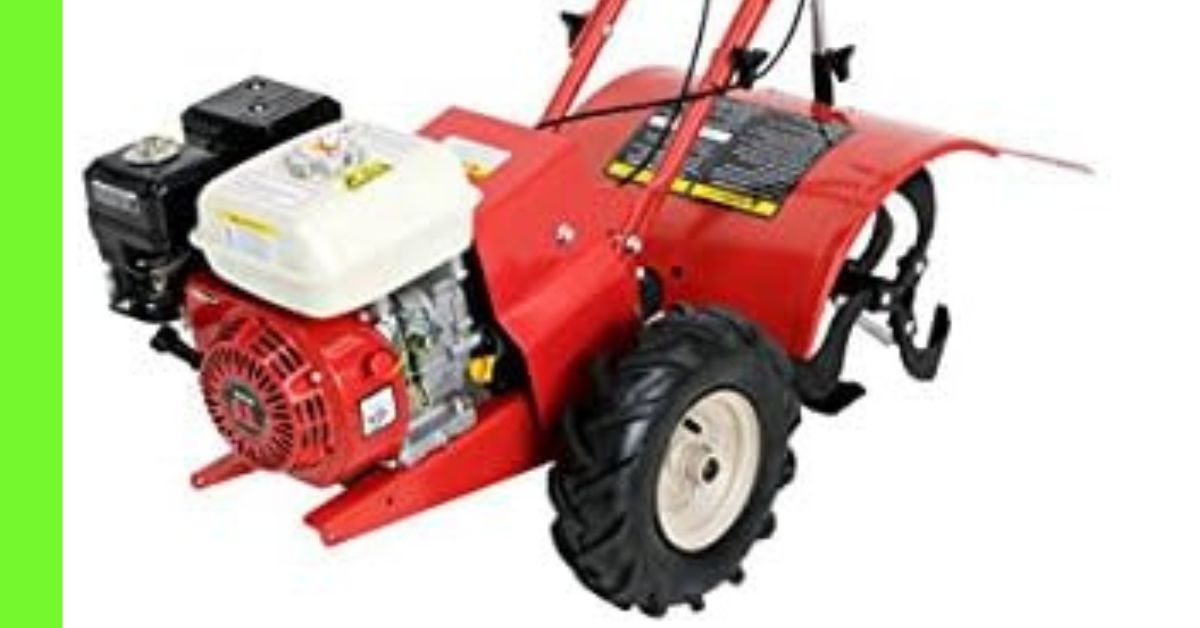
Agriculture remains a critical sector in our economy, with a vast number of citizens relying on small-scale farming for livelihood and food security.
However, productivity often suffers due to the lack of essential tools and machinery.
Investing in the right farm equipment can significantly boost efficiency, reduce labour, and increase yields.
This article explores the most essential farm equipment for small-scale farmers, categorised according to different farming operations such as:
- Soil preparation equipment
- Planting equipment
- Irrigation tools and systems
- Pest and weed management tools
- Harvesting equipment
- Post-harvest and processing tools
The Importance of Farm Equipment in Small-Scale Farming
In small-scale farming, every effort counts.
Manual labour is common, but it limits productivity and often leads to fatigue.
The right farm equipment, whether simple hand tools or more advanced machines, can help farmers:
- Reduce time spent on tasks
- Improve planting and harvesting precision
- Manage weeds and pests effectively
- Boost crop yields
- Lower production costs in the long run
Access to appropriate tools bridges the gap between traditional practices and modern agriculture.
Basic Hand Tools Every Small Farmer Needs
For most small-scale farmers, hand tools form the backbone of day-to-day operations.
They are affordable, easy to use, and don’t require fuel or electricity.
1. Hoe
A hoe is vital for tilling, weeding, and shaping soil.
2. Cutlass (Machete)
Used for clearing land, cutting crops, and removing weeds.
3. Rake
Rakes help in levelling soil, collecting debris, and removing stones from beds.
4. Shovel and Spade
Used for digging, transplanting, and turning compost. Shovels are curved and best for moving loose materials, while spades are flat and better for digging.
5. Watering Can
Crucial for irrigation, especially in garden beds and for seedling nurseries.
These tools are inexpensive and readily available in local markets, making them perfect for beginners or low-budget operations.
Learn more about these tools in this article, Basic Garden Tools.
Soil Preparation Equipment
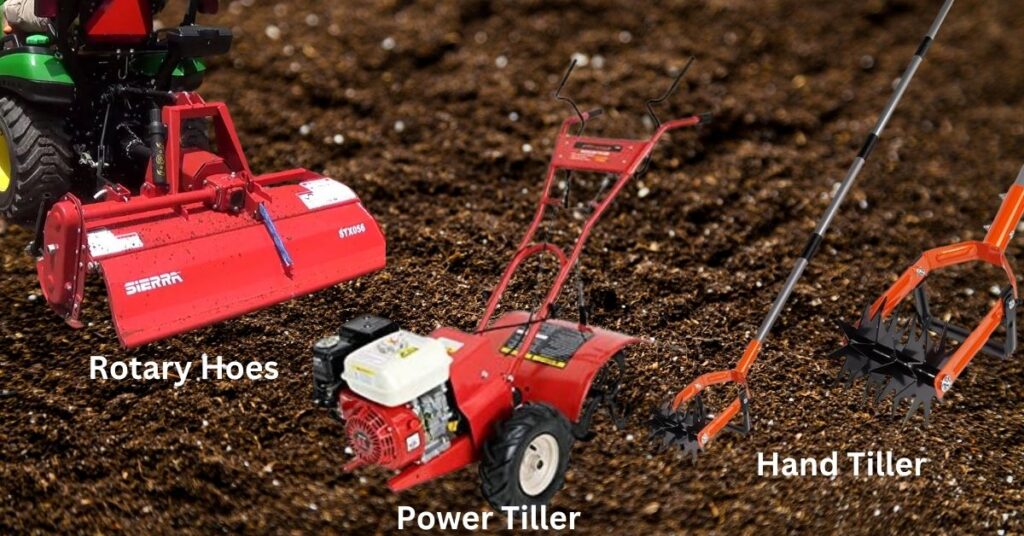
Good soil preparation sets the stage for a productive season.
While hand tools can work for very small plots, more extensive farms benefit from mechanised solutions.
1. Hand Tillers and Manual Cultivators
These are simple, human-powered tools for breaking up soil and mixing in compost. They are perfect for gardens and small plots.
2. Power Tillers (Two-Wheel Tractors)
Also known as walking tractors, power tillers can plough, cultivate, and even carry light trailers. They are affordable alternatives to full-size tractors and suitable for small farms.
3. Rotary Hoes
Rotary hoes break soil crust and manage weeds. They are ideal for field crops like maize and legumes.
Planting Equipment for Small-Scale Farmers
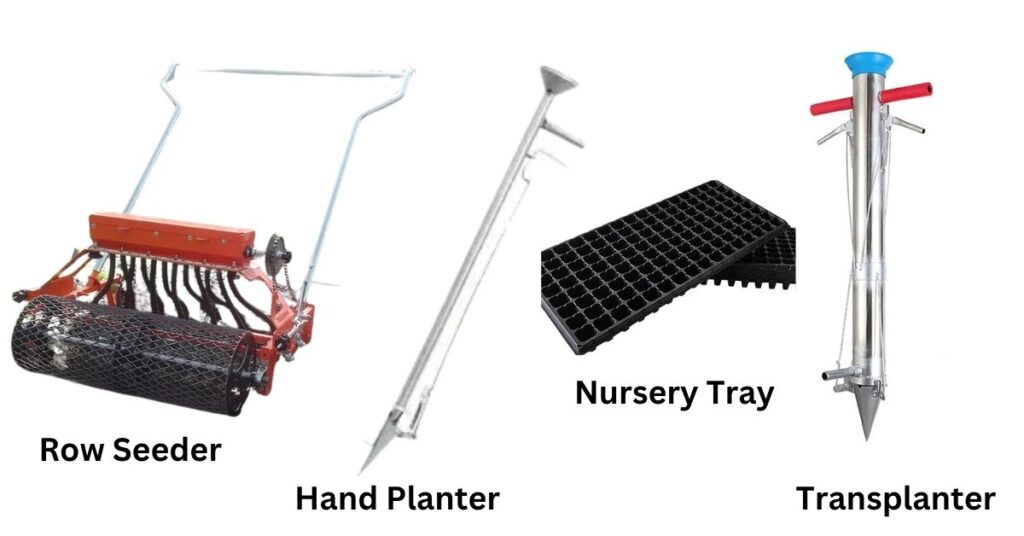
Precision in planting improves crop spacing, germination, and overall yield.
Manual broadcasting can waste seeds and cause uneven plant growth.
1. Hand Planters
Hand-held seeders like jab planters or seed dibblers allow for precision seeding with minimal labour.
2. Row Seeders
These are manually operated or animal-drawn tools that plant seeds in rows. They save time and ensure uniform plant spacing.
3. Nursery Trays and Transplanters
Nursery trays help raise healthy seedlings, while manual or semi-automatic transplanters assist in efficient field transplanting, especially for vegetables.
Irrigation Tools and Systems
Irrigation is essential for consistent crop production, especially during the dry season.
1. Watering Cans and Buckets
Affordable and easy to use for small gardens or potted plants.
2. Drip Irrigation Kits
These deliver water directly to plant roots, conserving water and improving efficiency. Basic kits are now available for small farms at a low cost.
3. Motorised Pumps
Useful for drawing water from wells, rivers, or tanks to supply irrigation systems. Farmers using drip or sprinkler systems often need them.
4. Sprinklers
Good for evenly watering larger areas. Portable sprinkler systems are available for small farms.
Pest and Weed Management Tools
Effective pest and weed control is key to a healthy farm. Equipment can help apply pesticides and herbicides efficiently and safely.
1. Knapsack Sprayers
These backpack-style sprayers are used to apply liquid fertilisers, pesticides, and herbicides. They are manually operated and widely used.
2. Hand Weeders
Simple tools like the short-handled hoe or finger weeder are used to control weeds manually.
3. Flame Weeders
Although not common, these are eco-friendly options that kill weeds using heat without chemicals, suitable for organic farms.
Harvesting Equipment for Small Farms
Timely and effective harvesting prevents crop losses and ensures market readiness. Harvesting tools vary by crop.
1. Sickle and Harvesting Knife
Used for cutting grain crops, vegetables, and leafy greens. They are cheap and effective for small-scale harvesting.
2. Baskets and Crates
Farmers need durable baskets or plastic crates for gathering and transporting harvested crops safely to storage or market.
3. Manual Threshers
Used to separate grains from chaff in crops like millet, maize, and rice. They save time and reduce post-harvest losses.
Post-Harvest and Processing Tools
Post-harvest losses are high due to poor processing and storage.
Investing in the right equipment can reduce waste and add value to produce.
1. Grain Dryers
Sun drying is common but inconsistent. Portable grain dryers improve quality and prevent mould or spoilage.
2. Milling Machines
Small milling machines can grind maize, millet, or cassava into flour, providing farmers with value-added products.
3. Oil Press Machines
For farmers growing groundnut or palm fruits, manual or small electric oil press machines are essential for local oil production.
Transportation and Handling Equipment
Efficient transport from farm to market or storage is essential. Small-scale farmers need equipment that helps them move goods easily.
1. Wheelbarrow
Useful for transporting tools, seedlings, and harvests within the farm.
2. Push Carts or Hand Trucks
These are ideal for local transport in villages or small farming communities.
3. Mini Farm Trailers
When paired with power tillers or small tractors, trailers help move larger quantities over longer distances.
Choosing the Right Equipment
When selecting farm equipment, small-scale farmers should consider:
- Size of the farm: Larger tools or small machines may be necessary for bigger plots.
- Crop types: Different crops require specific tools.
- Budget: Start with the most essential tools and gradually expand.
- Ease of use and maintenance: Simpler tools are better for beginners and low-skill labour.
Where to Source Farm Equipment in Nigeria
Small-scale farmers in Nigeria can source affordable equipment from:
- Local markets and farm supply shops
- Online platforms like Floratalk Hub, Jiji.ng, Jumia, Konga
- Cooperative societies and agricultural extension programs
- Government schemes such as the National Agricultural Seeds Council (NASC) and Bank of Agriculture programs
- NGO or donor support for community agriculture initiatives
Used or refurbished equipment is another cost-effective option, but it must be carefully inspected before purchase.
Conclusion
Equipping a farm with the right tools doesn’t always require a massive investment.
Starting small and scaling up as needs grow is a sustainable strategy.
For Nigerian small-scale farmers, adopting even basic farm equipment can make a huge difference in productivity and profitability.
As more farmers embrace efficient practices, rural incomes will rise, food production will improve, and the overall agricultural sector in Nigeria will thrive.
Hope this article was helpful.

